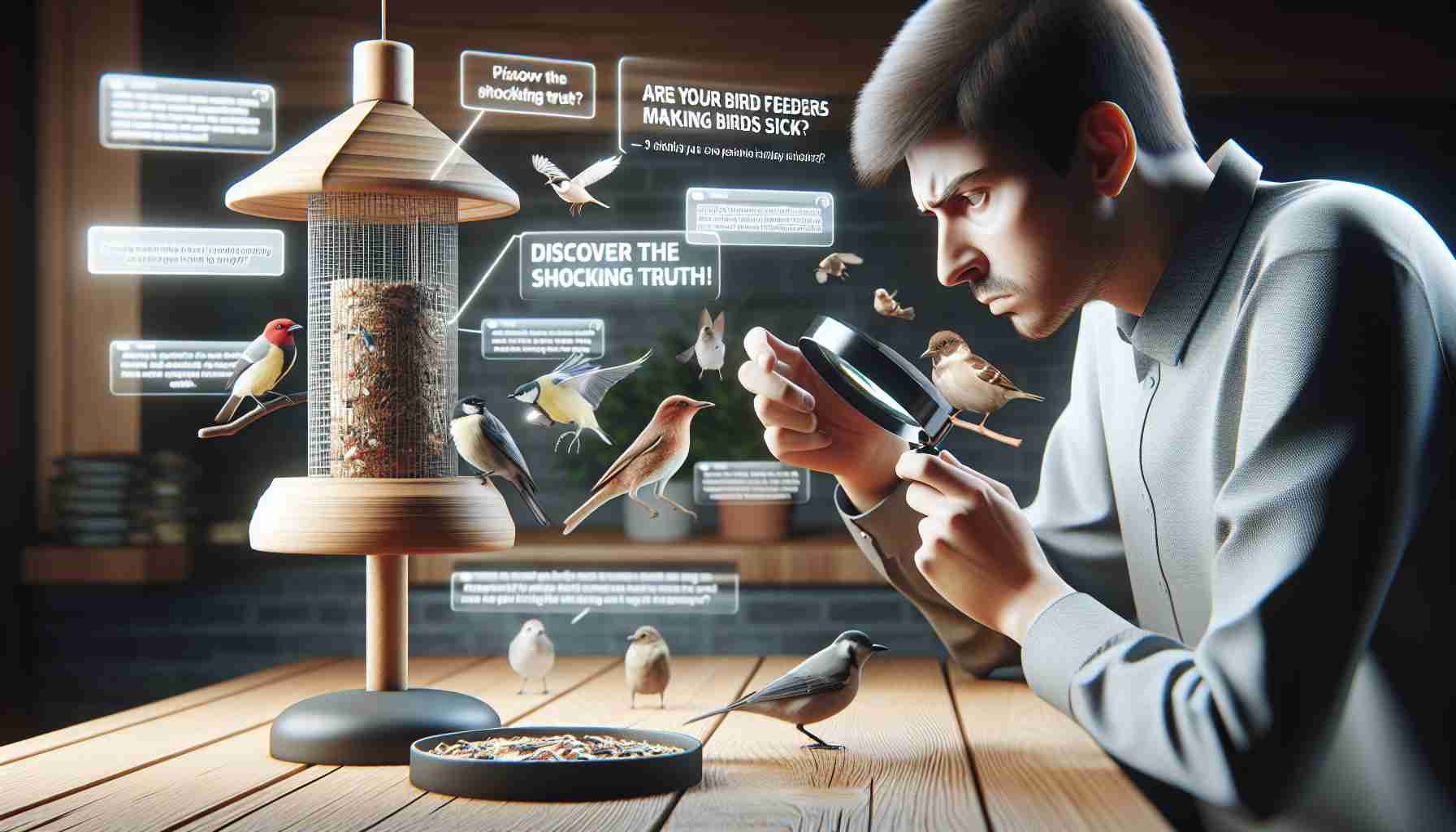New Guidelines from the RSPB to Protect Our Feathered Friends
In a significant move to safeguard bird health, the RSPB has suspended the sale of flat bird feeders on its website. Concerns have arisen that these feeders may be facilitating the spread of dangerous diseases, particularly among finches. With incidents of finch trichomonosis linked to a sharp decline in greenfinch numbers, the charity is taking proactive steps to address the issue.
The organization emphasized that while many enjoy feeding garden birds—especially in colder months—there is increasing evidence that doing so on flat surfaces can have devastating effects. Customers are urged to avoid using feeding tables, window feeders with trays, and similar products until further investigations clarify the situation.
The alarming decline in greenfinch populations, which has seen a staggering 63% drop since 1993, has scientists deeply concerned. The disease is transmitted primarily through regurgitated food and contaminated drinking sources, raising red flags for bird enthusiasts. Other bird species, like the chaffinch, are also facing similar challenges.
Experts from the British Trust for Ornithology noted the importance of understanding the balance between benefits and risks involved in feeding wild birds. Although the research is ongoing, they recommend maintaining hygiene for existing feeders and are eager to provide updated practices once conclusive results are available. The RSPB’s decision reflects a cautious strategy aimed at ensuring the well-being of our beloved birds.
New RSPB Guidelines: Ensuring Bird Health Amidst Rising Concerns
In light of increasing health risks for birds, the Royal Society for the Protection of Birds (RSPB) has taken definitive action by suspending the sale of flat bird feeders on its website. This decision follows mounting evidence suggesting these feeders may contribute to the spread of serious diseases such as finch trichomonosis, which has been linked to alarming declines in finch populations.
Understanding Finch Trichomonosis and Its Impacts
Finch trichomonosis is a parasitic infection that primarily affects finches and can result in severe health issues or even death among affected birds. The disease is spread through contaminated food and drinking water, particularly via regurgitation, posing a substantial threat to species like the greenfinch and chaffinch. Since 1993, greenfinch numbers have plummeted by approximately 63%, raising concerns among ornithologists and conservationists.
RSPB’s Recommendations for Bird Enthusiasts
With the suspension of specific feeder types, the RSPB has urged bird feeding enthusiasts to reconsider their practices. Preferences should shift away from feeding tables and window feeders with trays, which are believed to exacerbate the transmission of diseases. Instead, individuals are encouraged to:
1. Maintain Hygiene: Regularly clean existing feeders to reduce contamination risks.
2. Monitor Bird Species: Keep an eye on health trends in local bird populations and report any unusual behavior or sickness to local wildlife authorities.
3. Feed in Moderation: Reduce the volume of bird food offered at any one time to minimize spoilage and contamination.
Ongoing Research and Future Guidelines
The RSPB, along with the British Trust for Ornithology, is actively investigating the correlation between feeding habits and bird health. Experts are focused on balancing the enjoyment of bird feeding with the potential risks involved. Updates and new guidelines will be shared once research provides conclusive evidence.
Why Bird Feeding Is Important
Despite the risks, feeding birds can provide crucial support during harsh weather conditions. The RSPB emphasizes balancing the positive aspects of bird feeding with the necessity of ensuring avian health. By adopting safer feeding practices, bird lovers can continue to enjoy the presence of feathered friends in their gardens.
Pros and Cons of Using Bird Feeders
Pros:
– Provides essential nutrition, especially in winter.
– Offers enjoyment and opportunities for birdwatching.
– Contributes to local biodiversity by supporting various bird species.
Cons:
– Risk of disease transmission among birds, particularly with certain feeder designs.
– Potential disruption to birds’ natural foraging behaviors.
– Need for regular maintenance and cleaning of feeders.
Conclusion
The suspension of flat bird feeders by the RSPB is a significant step towards protecting the health of our wild birds and preventing further declines in vulnerable species. As ongoing research unfolds, bird lovers should remain informed and adjust their feeding practices to ensure the safety and well-being of their avian visitors. For continued updates on bird health and care practices, visit the RSPB’s official site at RSPB.
